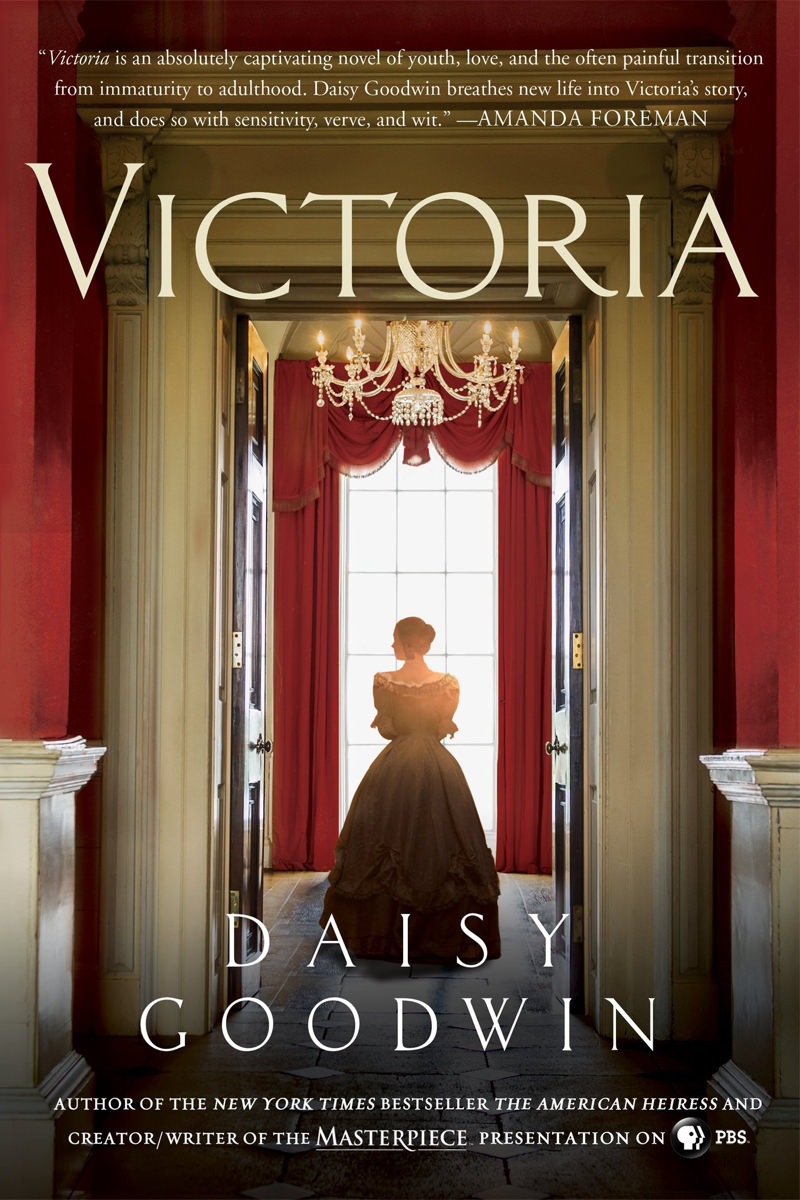VICTORIA
DAISY GOODWIN
Eighteen-year-old Princess Victoria of Kent finally ascends the throne of Great Britain after the death of her uncle, William IV, but it soon becomes clear no one thinks she is capable of being queen.
Sheltered her whole life by her overprotective mother, Victoria relishes the freedom her new role brings and she surprises everyone with her firm resolve. However, Victoria soon realises her education has been sadly lacking in matters of state and she begins to rely heavily on her prime minister, Lord Melbourne.
REVIEW
Apparently the novel version of Victoria was written at the same time as Daisy Goodwin was adapting the series for television, however fans of the series are going to find the novelised version somewhat lacklustre in comparison. The format of the series, focusing on life upstairs and downstairs at Buckingham Palace, was an obvious ploy to hook in viewers pining for Downton Abbey but it worked in the sense that it enriched the story. Sadly, although the servants are present in the novel, the backgrounds developed for the series are nowhere to be seen so the story focuses entirely on Victoria.
I’ve read interviews where Daisy Goodwin says she got the idea for the series from watching her daughter go through the turbulent teenage years which left her wondering how a teenage girl would also cope with ruling a kingdom. As a result, Goodwin presents us with a version of Victoria that we are not used to seeing, unless you have read her diaries for yourself, which is miles away from the bitter widow of her later years. The trouble is teenagers did not exist in Victoria’s time and I feel Goodwin gives the character an outlook that is far too modern at times which makes Victoria’s behaviour somewhat unbelievable.
The book does have one advantage over the series in that Goodwin has plenty of time to explain the intricacies around the line of succession which led to Victoria becoming heir presumptive in the first place. The shadow of Princess Charlotte looms large over the series but the consequences of her death in childbirth aren’t really explained adequately enough for a casual viewer, so Goodwin does a good job of explaining everything without making it too dry. Goodwin also manages to focus on more social issues in the novel than she does on the series, but they are not explored in any real depth and are mainly left in the background.
Of course, being a writer of historical fiction doesn’t mean you have to be faithful to the truth either and the real focus is on the relationship between Victoria and her prime minister, Lord Melbourne, which has been grossly exaggerated into a romance. Melbourne was forty years older than his young queen and nowhere near as handsome as he has been depicted so it baffles me why Goodwin would even want to make their relationship as romantic as she did. While rumours did abound about the nature of Victoria’s relationship with Melbourne, it was as far from being a romance as you could get which is probably why I didn’t believe in it.
The great love of Victoria’s life was of course her cousin Albert but the romance with Melbourne condemns Albert to being a mere footnote until Victoria deems him worthy of her attention. One of the biggest problems I had with the series was that Victoria’s love for Albert seems to come out of the blue since we are not privy to the fact they have been corresponding. Victoria was already in love with Albert by the time she became queen, she just wasn’t ready for marriage, but I guess that is less dramatic than having her fall in love with an older man.
On the evidence of this book, I think Goodwin owes a massive debt to the actors who brought her story to life because I actually liked the series once I got past the annoying inaccuracies, but, for me, the novel fails to impress. It should also be noted the novel ends with Albert and Victoria’s engagement unlike the series which ended after the birth of their first child.

